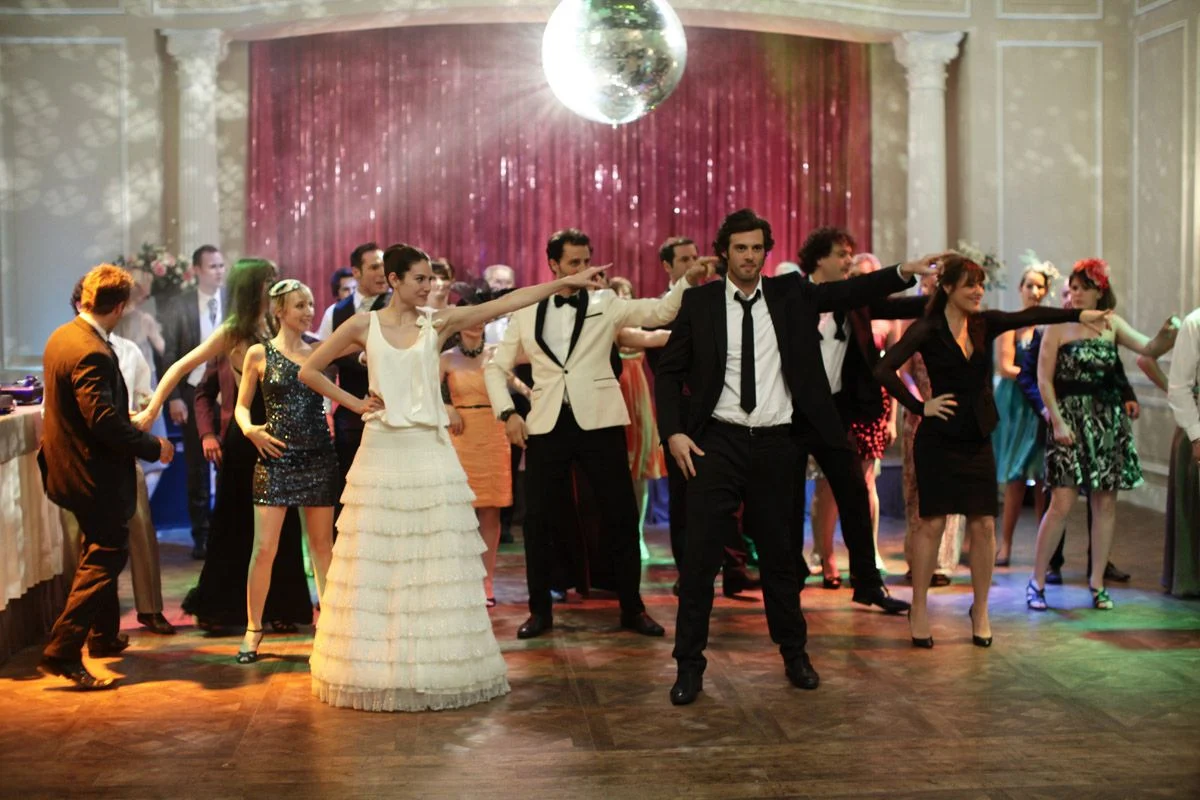 Image courtesy of France Channel, “Plan de table”
Image courtesy of France Channel, “Plan de table”
A French wedding is more than just a ceremony—it’s a celebration of love, heritage, and timeless elegance.
Rooted in history yet evolving with modern influences, French weddings blend romance with sophistication,
creating an experience that feels both intimate and grand. From the proposal to the reception, each stage of the
journey reflects the country’s deep appreciation for love and tradition.
One of the most significant aspects of a French wedding is the civil ceremony. In France, marriages must first
be legally recognized by the state before any religious or symbolic ceremony can take place. This official event
is typically held at the local mairie (town hall) in the presence of the mayor or a representative, and it often
includes only close family and witnesses. While this part of the wedding is straightforward, it sets the
foundation for the larger celebration that follows.
For those who opt for a religious or symbolic ceremony, the atmosphere shifts to one of romance and grandeur.
Whether held in a historic church, a countryside château, or a picturesque vineyard, the setting plays a crucial
role in shaping the wedding’s ambiance. French weddings often emphasize natural beauty, with floral
arrangements, candlelight, and elegant décor enhancing the venue’s charm rather than overpowering it.
The bride’s dress, often inspired by timeless designs, embodies effortless sophistication—simple yet refined,
reflecting the French philosophy that less is more.
Following the ceremony, the reception is where French weddings truly come to life. Unlike in some cultures where
the focus is on quick transitions between dinner, speeches, and dancing, French weddings are known for their
long, leisurely celebrations. A multi-course meal is a highlight of the evening, with an emphasis on gourmet
cuisine and fine wines. From delicate hors d’oeuvres to regional specialties, the wedding menu reflects the
culinary excellence that France is famous for. Instead of a traditional tiered cake, many couples opt for a
pièce montée—a tower of cream-filled profiteroles drizzled with caramel, which adds both visual and gastronomic
delight to the occasion.
Beyond the food and décor, the essence of a French wedding lies in its spirit of conviviality. Guests are
encouraged to take their time, engaging in meaningful conversations, enjoying each course, and savoring the joy
of the occasion. The vin d’honneur, a pre-dinner cocktail reception, allows guests to mingle over champagne and
light bites, setting a relaxed yet celebratory tone. When it comes to entertainment, French weddings balance
elegance with spontaneity—live music, heartfelt toasts, and even playful traditions like the jeu des rubans
(ribbon-cutting game for the bride’s bouquet) keep the energy light and joyful.
As the night unfolds, dancing takes center stage. While some couples share a traditional first dance, many
French weddings favor an organic flow of music that keeps guests on their feet into the early hours of the
morning. Instead of rigid timelines, there’s a sense of effortless celebration, allowing love and laughter to
guide the evening. In some cases, an after—a post-wedding breakfast—extends the festivities even further,
proving that in France, love is something to be cherished and celebrated for as long as possible.
Cultural Differences: How French Weddings Compare to Other Traditions
French weddings have a unique rhythm and etiquette that set them apart from those in other cultures. One of the
biggest differences is the timeline of events. Unlike in countries where the wedding day follows a structured
sequence—ceremony, cocktail hour, dinner, and dancing—French weddings are known for their relaxed and extended
format. The dinner alone can last several hours, with guests enjoying multiple courses, wine pairings, and long
conversations before the party truly begins.
Another major difference is the approach to speeches and toasts. In many English-speaking countries, speeches by
the best man, maid of honor, and family members are expected highlights of the reception. In France, however,
formal speeches are less common, and when they do happen, they tend to be short and spontaneous rather than
pre-planned monologues. The focus is more on casual storytelling, laughter, and shared memories rather than
structured moments of public speaking.
Gift-giving traditions also vary. In some cultures, guests bring wrapped gifts for the newlyweds, but in France,
it’s more common to give money in an envelope or contribute to the couple’s honeymoon fund. Wedding registries
are less popular, as many couples already live together before marriage and do not need household items.
erhaps one of the most charming differences is the wedding timeline itself. In some countries, weddings
typically end before midnight, but in France, it’s not unusual for celebrations to continue until dawn. French
guests don’t rush home—they pace themselves, enjoying the evening as a true gathering of love, friendship, and
indulgence. This cultural preference for long, meaningful celebrations reflects the French joie de vivre—the
idea that life’s greatest moments should be savored.
A French wedding is not about excess; it’s about authenticity, refinement, and the beauty of shared moments.
Whether in a grand Parisian ballroom or a quiet countryside retreat, the focus remains on the love between two
people and the bonds they share with family and friends. In this way, French weddings stand as a testament to
the country’s enduring romance—where tradition and modernity meet in perfect harmony, and where love is always
the most important guest.